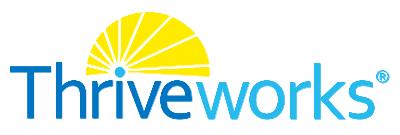About Job
- Manage a caseload of approximately 30 adults at any given time
- The SUD Counselor is responsible for ensuring that the client is at the appropriate level of care
- Responsible for linking clients as they transition through the levels of care, ensuring that the treatment plan is formulated.
- Provides oversight of linkages to off-site services to meet additional needs related to a co-occurring medical and/or psychiatric condition, as documented in the treatment plan.
- Monitor the compliance with, and effectiveness of, services over the treatment period and make a determination of the frequency of ongoing assessments.
- Provide Individual, Group Counseling, according to the consumer’s assessed needs.
- Provide Initial, Comprehensive and Brief assessments/screenings; and as needed diagnose
- Provide Crisis intervention services
- Attend comprehensive treatment team and assessment meetings on each client as part of the interdisciplinary team
- Schedule clients for ongoing assessments to ensure continuity of care
- Create implementation of treatment plan and administrative facilitation of the client’s service needs, including but not limited to scheduling of appointments, assisting in completing applications, facilitating transportation, tracking appointments, and collecting information about the client’s progress.
- Assist the client in the development of interpersonal and community coping/life skills necessary to remain sober and maintain recovery.
- Assist the client in the development of relapse and symptom management strategies and recovery plans.
- Adheres to Volunteers of America Chesapeake’s documentation requirements
- Documents all billable activities SUD/Recovery /VOAC Standards (as required)
- Complete progress notes within 48 hours of a face-to-face encounter (as required)
- Establish and maintain a community resources and referral index.
- Perform duties as outlined in Program’s Operation Manual.
- Perform duties as assigned.
- Meet assigned weekly/monthly productivity requirements
- Required: Candidates must possess at minimum a Certified Addiction Counselor 1 (CAC1) certification , a High School Diploma or equivalent, and at least two years’ experience providing services as a licensed clinician.
- Preferred: Candidates possess a Bachelor’s Degree or Master’s Degree in the health or human service field, and are a Certified Addiction Counselor II, (CACII). Candidates must have at least two years’ experience providing services as a licensed clinician or at minimum one year under supervision of a licensed professional counselor, licensed social worker, or a certified addiction counselor II, specifically working with persons experiencing substance use disorders (SUD), serious mental health illness (SMI) or co-occurring disorders (COD);
- Most importantly, the candidate must be able to develop strong collaborative working relationships with clients using appropriate patient-centered communication skills; the community specifically with the appropriate municipal, county, City, and State agencies, as well as, other non-profit agencies, including the faith based community.
- The selected candidate will be able to provide individual and group substance use counseling services; apply case management skills to maintain client records using appropriate clinical recording keeping/management skills.
- Language abilities in Spanish is also a plus.
- Prepare written reports, and document and maintain client data using an electronic client record system.
- Experience in Motivational Interviewing, Person-Centered Approach, and Cognitive Behavioral Therapy (CBT) is preferred.
- Acceptable FBI background, FBI Fingerprint, Child Protective Services, OIG Exclusion check
- Negative Drug/TB Screening
- CPR/First Aid Certification must be acquired and maintained once employed
- The ability to safely operate a motor vehicle to transport oneself, clients, and program supplies as necessary.
- The physical ability to travel to assigned locations, stand, stoop, bend, reach, pull, push, lift, grasp, climb, talk, see, hear and perform basic and light home maintenance activities, and operate office equipment.
- Move and lift light objects up to 30 pounds such as mail, supplies, files, and equipment.
- Operating office equipment requiring continuous or repetitive hand/arm movements.
- The ability to remain in a sitting position for extended periods of time.
- Occasionally, ability to lift, carry, push, pull or otherwise move objects, including the human body.
- Improve or increased stability in the client’s level of functioning.
- Insures that each client’s individualized needs are met.
- Insures that all documentation pertaining to client services is completed in compliance with agency policies and funding source requirements.
- Presents a positive image to the residents and public.
- Ensure compliance with contractual obligations.
eQuest
Professional Field
 Counseling
Counseling Social Work
Social Work Other Behavioral, Mental, or Healthcare Field
Other Behavioral, Mental, or Healthcare FieldPatient Focus
Diagnoses
Avoidant Personality Disorder
Dual Diagnosis
Substance-Related and Addictive Disorders
Issues
Racism, Diversity, and Tolerance
Substance Abuse
Age Groups
Adults
Therapeutic Approach
Methodologies
ECT
Modalities
Individuals
Practice Specifics
Populations
Individuals with Addiction Issues
Victims of Crime/Abuse (VOC/VOA)
Aviation/Transportation
Racial Justice Allied
Settings
Intense Out-patient (IOP)
Milieu
Partial Hospitalization (PHP)
Research Facilities/Labs/Clinical Trials
Residential Treatment Facilities (RTC)
Substance Abuse Treatment Facilities
Home Health/In-home
Sign up for job alertsGet daily alerts for jobs relevant to you, sent to your inbox





